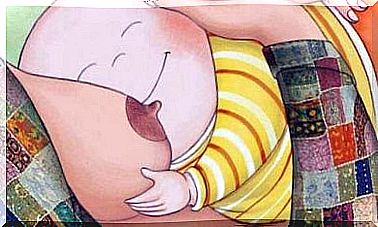What Is Intellectual Capacity In Children?

Are you aware of the signs of high intellectual capacity in children? Do you ever suspect that your child may have above-average intelligence?
As mothers, we all tend to be a little biased when assessing our child’s abilities. But what if your child really has a special gift?
Below we will tell you how to tell if a child has high intellectual abilities. We will also offer advice on guidance and educate them throughout their development.
And most importantly, we will offer tips to keep your child from getting bored or unmotivated, and help them enjoy the company of others.
What is high intellectual capacity?
High intellectual capacity refers to intellectual giftedness, talent, and intellectual haste. Together, these factors represent a higher than average IQ of 130 or higher.
Intellectually gifted children make up 2% of the population. This means that they have intelligence that is higher than the remaining 98%.
One characteristic that tends to stand out in people with high intellectual ability is creativity.
They possess a great level of imagination, which makes them very versatile people. They also have a good initiative and are able to make effective decisions.
Some important differences
- People with intellectual talent are those with high intellectual abilities who define maximum human intelligence. This explains their giftedness.
- Talented individuals have a higher point level in one or more qualifications. But their scores in other areas are similar to the general population.
- Intellectual haste refers to children who acquire and demonstrate their knowledge at an earlier age than others. For example, children who learn to speak can compose sentences and hold a conversation before the age of two.

How can I know if my child has a high intellectual capacity?
High intellectual capacity is determined by a full evaluation that examines the following aspects in detail:
- Life story
- Emotional state
- Creativity
- Intelligence quotient
Signs of high intellectual capacity
Of course, each individual develops himself. But it is possible to establish some general signs during different stages of development.
Below we will explain these signs:
High intellectual capacity in babies:
- Requires more of their parents’ attention.
- Shows psychomotor coordination within a month. For example, they can hold their heads up.
- During the second month of life, they can vocalize more than one sound.
- They learn to say their first words at 5 months of age.
- By the 6th month, they can already identify when someone calls them by name.
High intellectual capacity in children
As the child grows, different qualifications will stand out and catch your attention. At first it may seem confusing, but little by little you begin to understand why.
These qualifications will also be very different from other children, leaving very important clues.
It is important to keep in mind one thing: the emotional world of these children.
Children with high intellectual capacity tend to exercise their emotions with high intensity. Their reactions may seem exaggerated or confusing to most people around them.

Main characteristics
- They have a great concentration.
- Children with high intellectual capacity are competitive, perfectionists and demand a lot of themselves.
- They have a hard time tolerating frustration and managing their anger properly.
- These children tend to break away from the norm. This is not because the child wants to be disobedient. Rather, these children will not follow rules or guidelines that seem illogical or without a good explanation. Therefore, it is important to maintain good communication and set clear boundaries.
- Hypersensitivity in at least 1 of the 5 senses. This explains why they are often disturbed by certain odors or loud music. For example, they may complain about the way certain clothes feel, or ask for the lights to go out.
- Psychomotor hypersensitivity. These children seem to have an above average energy level. They are hard to make tired and are in constant motion. This is their way of getting rid of tension. This trait should not be confused with ADHD (Attention Deficit Hyperactivity Disorder).
High intellectual capacity in teenagers
Characteristics of high intellectual capacity appear before adolescence.
But some cases go undetected in childhood. Characteristics of high intellectual capacity in adolescents are the following:
- Tends to constantly ask questions and inform existential problems. For example: Death, religion, life, etc.
- These teens tend to question authority and norms. They have an increased ability to see loopholes or inconsistencies. This makes it harder for them to be “obedient” without giving their opinion.
- They have excellent memory, both visually and audio.
- They often dislike interacting with others their own age, simply because they are bored. They will feel a gap between themselves and others. This can cause them to become easily frustrated as they do not relate to the thoughts of their peers.
- They tend to adopt a cultured vocabulary that they will try to enrich every day. They have a good preference for precision. In other words, they enjoy using just the right word at just the right time.
Like all individuals, children with high intellectual capacity have unconditional love and support.
This is the most important thing you need to know. We must guide them so that they can live freely in society and enjoy life.
We should teach our children to have fun, relax and use tact in relation to others.
And we should avoid giving them the opportunity to become people with a superiority complex or to act condescendingly towards others. With these attitudes, of course, they get nowhere.









